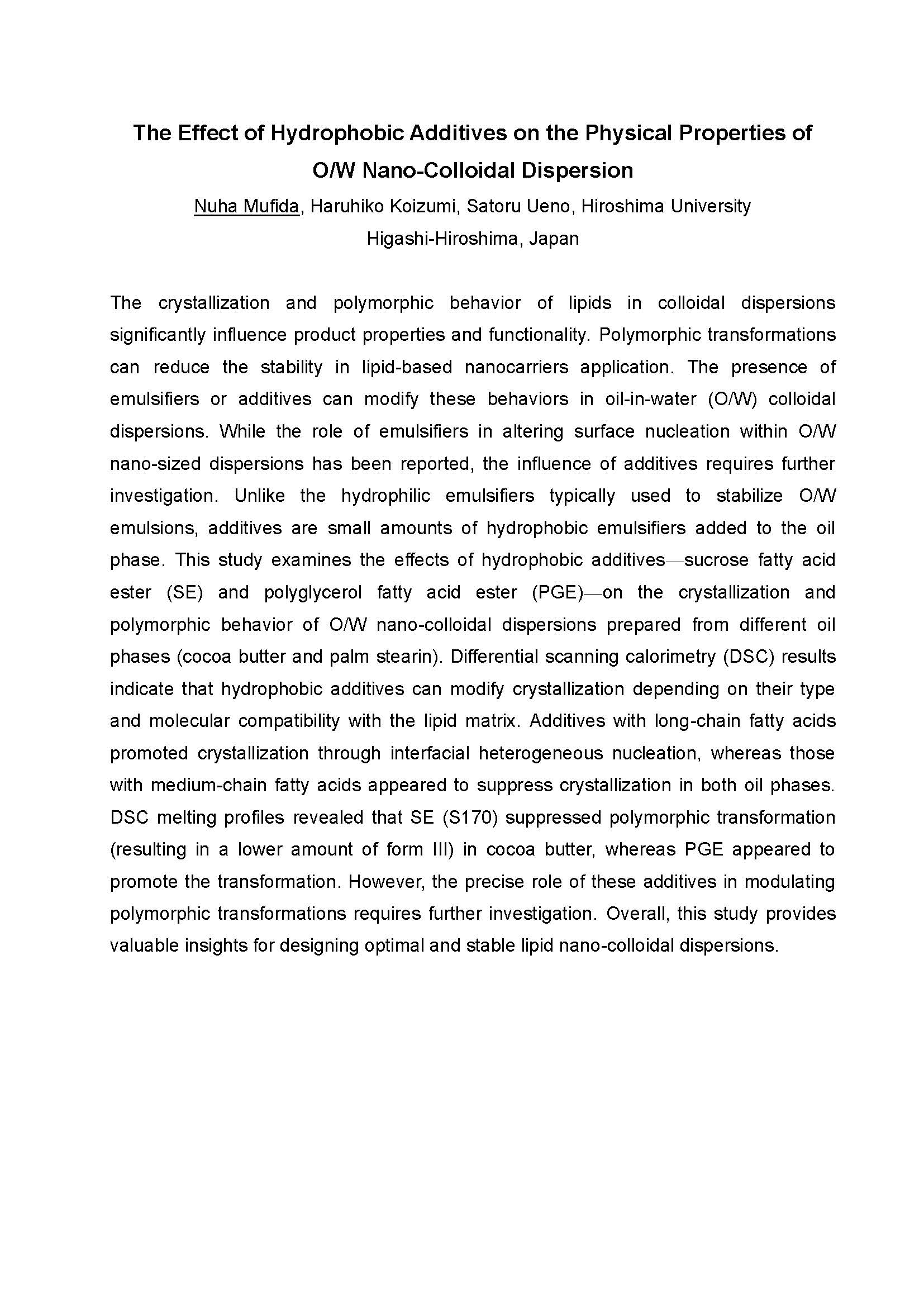The crystallization and polymorphic behavior of lipids in colloidal dispersions significantly influence product properties and functionality. Polymorphic transformations can reduce the stability in lipid-based nanocarriers application. The presence of emulsifiers or additives can modify these behaviors in oil-in-water (O/W) colloidal dispersions. While the role of emulsifiers in altering surface nucleation within O/W nano-sized dispersions has been reported, the influence of additives requires further investigation.
Unlike the hydrophilic emulsifiers typically used to stabilize O/W emulsions, additives are small amounts of hydrophobic emulsifiers added to the oil phase. This study examines the effects of hydrophobic additives—sucrose fatty acid ester (SE) and polyglycerol fatty acid ester (PGE)—on the crystallization and polymorphic behavior of O/W nano-colloidal dispersions prepared from different oil phases (cocoa butter and palm stearin). Differential scanning calorimetry (DSC) results indicate that hydrophobic additives can modify crystallization depending on their type and molecular compatibility with the lipid matrix. Additives with long-chain fatty acids promoted crystallization through interfacial heterogeneous nucleation, whereas those with medium-chain fatty acids appeared to suppress crystallization in both oil phases. DSC melting profiles revealed that SE (S170) suppressed polymorphic transformation (resulting in a lower amount of form III) in cocoa butter, whereas PGE appeared to promote the transformation. However, the precise role of these additives in modulating polymorphic transformations requires further investigation. Overall, this study provides valuable insights for designing optimal and stable lipid nano-colloidal dispersions.
